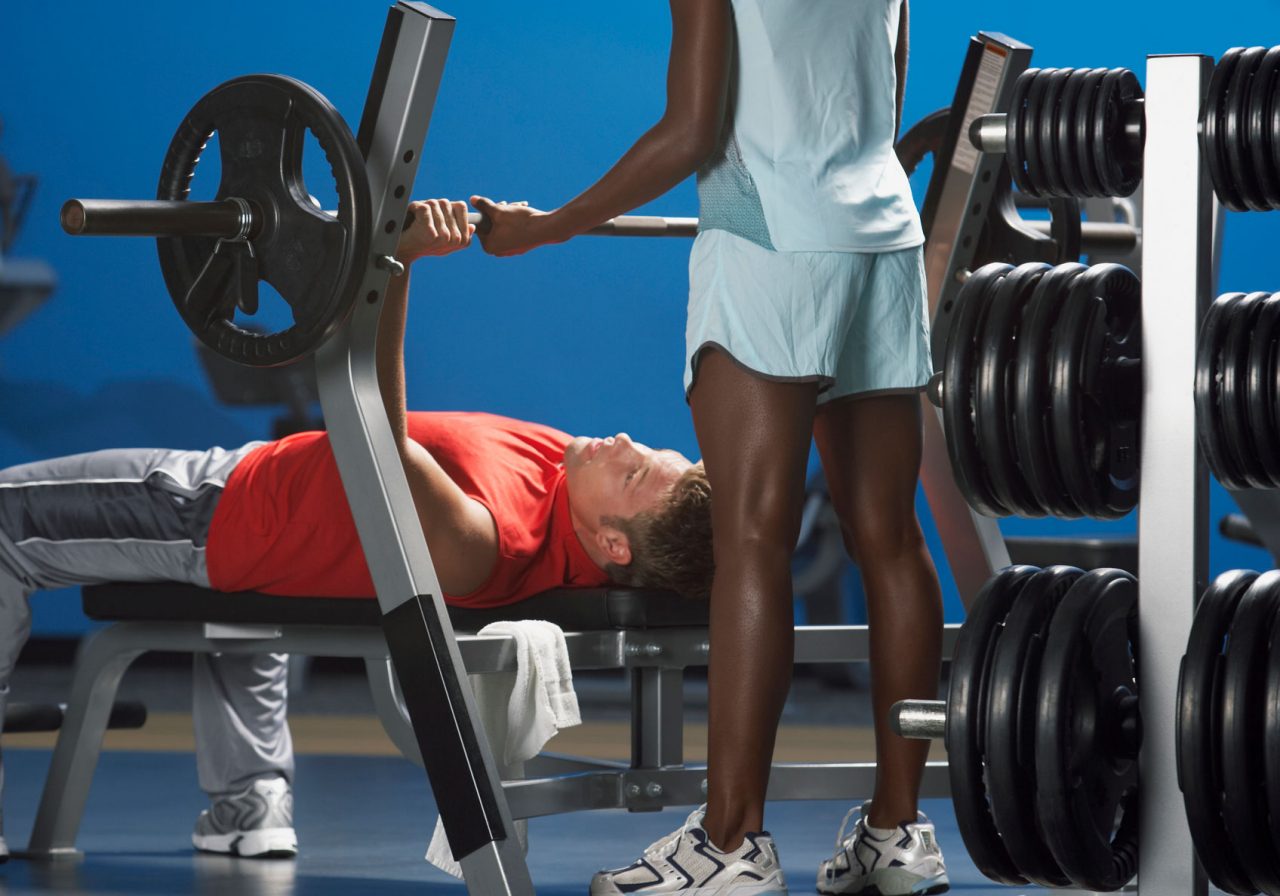How Safe Is Your Gym?

Gym equipment can have more than 400 times the bacteria found on your toilet seat. When you finish working out, remember to wipe down everything you used.
When you finish up at the gym, do you always remember to wipe down the equipment you used?
If you often forget, you’re not alone — and the result may make you reconsider going to the gym at all.
Review site FitRated tested the levels of bacteria found on 27 pieces of gym equipment at three different gyms. Their conclusion? Every time you use the gym, you are putting yourself at risk for infection from millions of potentially harmful bacteria and germs.
YOU MIGHT ALSO LIKE: Finding the Best Workout Routine for You
Contaminated exercise equipment
The study tested exercise bikes, treadmills, and free weights, swabbing them down and sending the samples to an independent facility for examination.
The tests revealed that the equipment had more than one million bacteria per square inch, 70 percent of which was potentially harmful to humans. The average exercise bike was covered in more than 400 times the level of bacteria found on the average toilet seat.
Bacteria found on gym equipment
The most common bacteria, gram-positive cocci, was found on 52 percent of treadmills, 42 percent of exercise bikes, and 30 percent of free weights. According to the Clinical Microbiology Review, gram-positive cocci are often found in feces or on your genitals, and they can cause respiratory, skin, genital, and urinary tract infections.
Being exposed to high concentrations of those bacteria can put you at risk for developing pneumonia and septicemia, which are often resistant to antibiotics.
The second most common type of bacteria found were gram-negative rods, a type of bacteria that often comes from human fecal matter and includes E. coli. They were found on 24 percent of treadmills, 19 percent of exercise bikes, and 50 percent of free weights.
According to the Centers for Disease Control and Prevention, more than 90 percent of gram-negative bacteria are harmful to humans, causing pneumonia, meningitis, and infections of the blood, urinary tract, and skin, as well as some sexually-transmitted diseases like gonorrhea. They are particularly dangerous because most strains have developed a resistance to antibiotics, and the infections they cause can be fatal.
Gram-positive rods, the third most common type of bacteria found, were found on 24 percent of treadmills and 20 percent of exercise bikes. They are less harmful to humans, but certain strains can still cause skin infections, fever, and mild sore throat.
Some studies have found that the risk of infection from gram-positive rods is greater if you have a pre-existing health condition or an open wound. They are more responsive to antibiotic treatment than either gram-positive cocci or gram-negative rods, however.
The final bacteria, Bacillus, was found on 19 percent of exercise bikes and 20 percent of free weights. Depending on the strain, the Journal of Medical Microbiology reports, those bacteria can be both helpful or harmful to humans, but harmful ones, such as anthrax, can be very dangerous.
If you ingest them, the bacteria can cause vomiting and diarrhea, as well as infections of the respiratory tract, urinary tract, eyes, skin, and ears. If you have an open wound, the bacteria can enter and cause a blood or skin infection, although studies have found that these infections are usually localized and can be treated with antibiotics.
How to keep yourself safe and healthy at the gym
All that bacteria may make you rethink your time at the gym. But if you still want to get your workout in, you can follow steps to keep yourself healthy and avoid the worst of the germs.
Wipe down equipment both before and after use with antibacterial wipes, not just water or a dry towel. Wash your hands frequently, and avoid touching fixtures and door handles in the bathroom. If you have a water bottle, avoid touching the mouthpiece or lid while working out. Never walk around barefoot in a gym or locker room.
It’s also important to avoid touching your face, especially your mouth and eyes, as well as any open injuries, cuts, or bug bites, as bacteria can enter at those sites. If you need to wipe away sweat, use a towel rather than your hand.
Finally, shower immediately after using the gym and wash any clothing you were wearing rather than using it again for your next workout.
YOU MIGHT ALSO LIKE: Pushing Your Body Makes You Mentally Stronger
Updated:
August 01, 2023
Reviewed By:
Janet O’Dell, RN